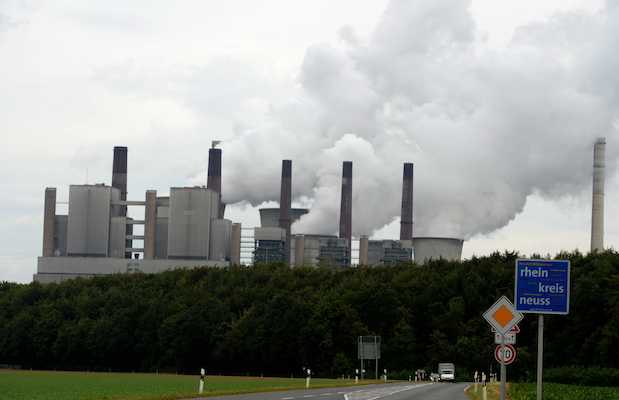Germany’s paradox: How €100bn meant more renewables yet more carbon emissions

The share of German electricity generated by coal has soared to its highest levels since 1990. Figures published on Tuesday, showed that brown coal (lignite) and bituminous coal together accounted for 45.5 per cent of Germany's energy production in 2013. This was up from 44 per cent the previous year.
Despite billions of pounds in subsidies and renewable energy accounting for 23 per cent of German electricity production, Germany's CO2 emissions are expected to rise. The situation has been further hindered by the country's commitment to close down all nuclear power plants by 2022.
Its Green party has called for urgent action to reverse the trend. Green politician Barbel Hohn said "anyone who is serious about the climate must ensure that less and less electricity comes from lignite comes."
Germany has paid dearly for its commitment to renewable energy. Over €100bn (£83bn) have been spent subsidising solar power. In 2013 a four person German household can expect to pay €220 (£134) in green levies.
However, some continue to believe that Germany's lavish spending on renewable energy is still a price worth paying.
Gerald Neubauer of Greenpeace implored the German government to "stop the shocking coal boom. This is the most serious undesirable development in the energy revolution that greatly endangers the German climate protection goals."
Germany's paradox of a greater role for renewables while simultaneously increasing carbon emissions stands in marked contrast to the United States. The US managed to slash its carbon emissions by 12 per cent between 2005 and 2012, due in large part to the rise of shale gas.
Shale gas has helped power an energy renaissance in the US with the price of electricity falling dramatically. The trend is likely to continue, with the Energy Information Agency forecasting that natural gas will overtake coal to provide the largest share of the US electric power generation by 2040.
The agency also forecasts that total US energy-related CO2 emissions will remain below levels seen in 2005 (6bn metric tons) right through to 2040, when they will reach 5.6bn metric tons.